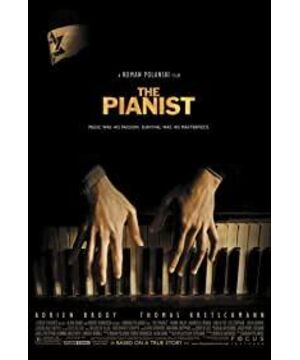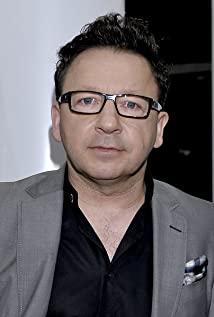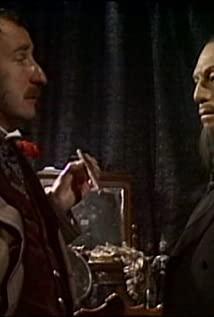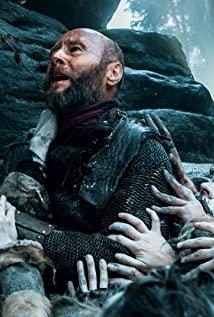A lot of just the right details were inserted in the film, which added to the viewer's overall experience of the treatment of the Jews during World War II, and at the same time showed the experience of the role of Spurman. Since Poland was invaded in 1939, the films have shown the Poles' independent style of politics. People continue to enter and leave the park, and the cafes, leisure life has not been stopped, the reason is that they believe that Germany is only retaliating against the Jews, and has nothing to do with them. At 4 minutes, the Jews placed their hopes on France, Britain and other countries, praying for everything to be well. It also shows the cowardly character and group ignorance of the Jews and Poles to the fullest. In the Nazi era, the Germans believed that laughter was the most ignorant manifestation, and for 19 minutes to force people to dance, the Germans laughed to show the stupidest side of the Germans, which contrasted strongly with the suffering of the Jews, and stimulated the viewer's emotions to the maximum. . In 44 minutes, the woman was shot dead instantly after questioning. The Jews did not have any mood swings and turned people's sympathy towards them into hatred. From 46 minutes to 50 minutes, Shakespeare quoted Shakespeare's famous words to express the anger of the Jews, while 500,000 people watched themselves being slaughtered and remained indifferent. This is a big blow to the ignorance of the group in the history of mankind. The cowardly human nature and the act of not daring to speak out will only make oneself fall into the abyss on the edge of life and death. Brody said: stupid, stupid. Sublimated hatred to the extreme. The plot arrangement of the German officer changing the cartridge case when they were killed in 57 minutes has prolonged the tension in the viewer's heart, and the killed person even has the desire to survive, and only quietly waits for the arrival of death. At 1 hour and 20 minutes, Pearman watched the people in the uprising being killed, and began to regret whether he should fight with the people on the other side of the wall. The regret and pain in his heart were tortured again under Brody's acting skills. My heart. And this was the beginning of the Poles being treated unfairly, the bus was divided, and the right to life was also deprived. At 1 hour 28, the Polish woman attributed her life difficulties to the existence of Jews, and they were unable to resist the Germans. Some passed on the hatred to the Jews. The war continued, and the Poles were forced to leave their hometowns. Until 2 hours after Spierman met the German officer, the German officer’s help to him satirizes the Polish people to a large extent. This kind of interdependent relationship is manifested, and it is the biggest provocation for our traditional thinking.
Watching the whole film, the most frightening thing is not the evil deeds of the Germans, but the cowardice and selfishness of human nature. After the end of World War II, someone filmed the world's first question-and-answer documentary, which asked three questions from 0 to 70 years old Poles, who are you; what are you doing now; what is your wish? The most answered is that I hope the Polish people can unite, which shows how disappointed the Polish people were with their own nation during World War II. In the film, the Polish people first began to squeeze out the Polish Jews and forbid them to enter the coffee shop. After that, the Jews began to increase prices and squeeze the wealth of their own people. Many more Jews joined the Jewish police to expose and attack their own people. . They all seek to stand on top of power in order to preserve themselves in troubled times. The irony is that they were all killed in the end, leaving no trace of wealth. A crazy couple paralyzes themselves in the painful world, playing the spirit of Ah Q to find fun in it, which is both ridiculous and sad. 400,000 Jews were eaten away bit by bit by the Germans under their own cowardice, and they were eventually wiped out.
During the process, Schipperman witnessed children being killed, Jews robbed each other, and workers' companions were shot to death. He felt a strong sense of self-blame and powerlessness in his heart. After being rescued from the concentration camp, he cried heartbreakingly. Weeping bitterly at the separation of family members, but also crying bitterly at the feeling of powerlessness after the slaughter of our national compatriots. Watching the war between them after escaping from life inside the wall, he tortured himself whether he should fight with them. It seems that all people with a conscience cannot abandon their inner justice.
A good movie can always reflect the reality, and the pianist is to remind people to never watch their own interests and abandon their inner conscience and the survival of the nation. Reflecting in reality, it seems that we also exist in such an environment, but it is not the persecution between the two countries, but the persecution of non-party members by party members. In order to gain power, people approach the party organization. These party members are afraid of the upper class and pass on their hatred to the lower class people, oppressing the local people. And companies that do everything that lacks morality are just victims under this system, but people are miserable, even hard to speak. This kind of "spoiling" the government led to the formation of this system. After the division of resources is over, the stratification of classes is completely formed. Fortunately, we will not be slaughtered.
View more about The Pianist reviews











